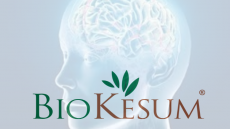COVID-19 and industry shutdown: ANZ supplement firms seek clarification on ‘essential services’ status

The Natural Health Product New Zealand (NHPNZ) said in a notice circulated on March 23 that it had written to the Ministry of Business, Innovation, and Employment (MBIE) on the week before to seek clarification.
It added that the MBIE and Ministry of Health (MOH) officials would be meeting today (March 24) to finalise the list of sectors that fall under the ‘essential services’.
Based on the Government’s definition on ‘essential services’, the trade body believes that most, if not all of its members qualify as an essential business since they could be classified as FMCG, and/or primary industries, including food and beverage production and processing, and/or health services.
The move to seek clarification is in light of the country’s decision to move to Alert Level 4 from tomorrow for at least four weeks, where businesses will be closed, except for ‘essential services’ .
Examples of 'essential services' include health and emergency services, as well as utilities and goods transport.
“This is promising but not definitive, and they state that ‘more specific information for each sector will be published shortly’,” the association said, commenting on the list of essential services announced.
“We will continue to work with MBIE and MOH and provide updates to members as soon as possible.”
Complementary Medicines Australia (CMA) is also doing the same and is expecting a clarification by this Thursday.
NutraIngredients-Asia understands that the association is making the case that the sector is considered an ‘essential service’ since complementary medicines are manufactured as medicines in Australia.
To stem the spread of COVID-19, Australia has begun control measures such as reducing the operating hours of entertainment venues and restaurants etc.
In New South Wales, the state premier Gladys Berejiklian on March 22 announced for all non-essential services across the state to be closed over the next 48 hours. The non-essential activities and businesses include pubs, gyms, entertainment venues, and restaurants.
Elsewhere in Malaysia, there is confusion as to whether the dietary supplement industry is considered as ‘essential service’ and whether production can still go ahead during its two-week Movement Control Order (MCO) starting from March 18.
The president of Malaysian Dietary Supplement Association Muthu Kumar Shanmunghom told us that the confusion was due to the registration of health supplements coming under the purview of the National Pharmaceutical Regulatory Division, but it was not clearly stated on whether health supplements were part of the essential health services.
The other side of the globe
Meanwhile in the US, industry bodies are advocating for dietary supplement manufacturers and sales channels to remain open during the COVID-19 shutdown.
The Council for Responsible Nutrition and the National Products Association in the US have issued statements to voice their stance, explaining that these products “matter more than ever right now”.
The need to differentiate between ‘essential’ and ‘non-essential’ services have also spilled over to the e-commerce companies.
Amazon announced that it was prohibiting the shipments of any non-essential goods to its warehouses in the US and Europe until April 5.
Dietary supplements which rely heavily on Amazon to sell their products are said to be affected by this move.
In high demand
The outbreak of COVID-19 has led to a high demand for dietary supplements, especially for immune boosting products.
One Chinese botanical association Shaanxi Plant Extract Association told us that there was a rebound in the orders received for its immune-boosting plant extracts, especially from the US, in early March.
Others such as vitamin C have sold well in China via JD.com and Singapore’s supermarket chain FairPrice.
Chinese supplement brands such as Angel Yeast also said the demand for glucan, lactoferrin, selenium-enriched yeast has increased by three-fold.



















